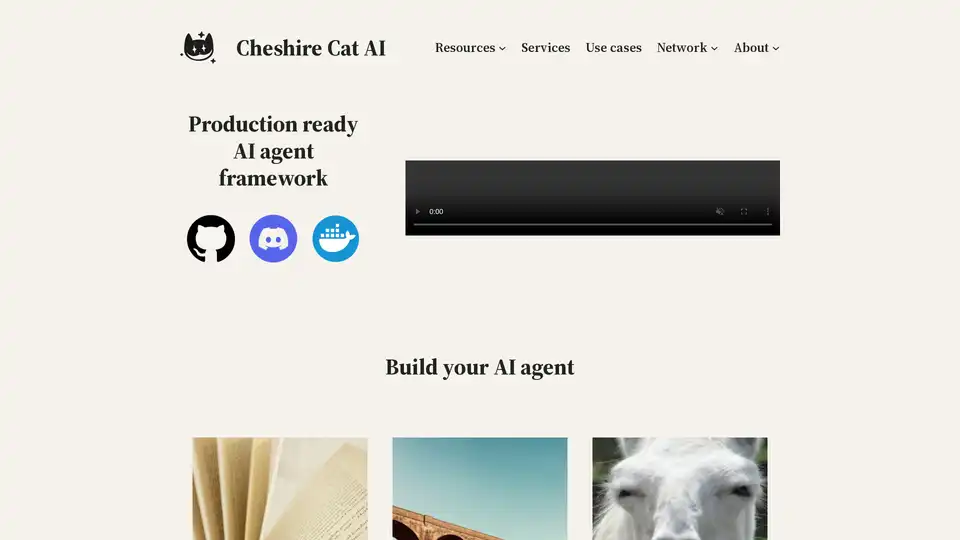
Cheshire Cat AI
Overview of Cheshire Cat AI
Cheshire Cat AI: Build Your Production-Ready AI Agent
Cheshire Cat AI is an open-source AI agent framework designed for developers and organizations looking to create customized, production-ready AI agents. This framework provides a flexible and extensible platform for integrating large language models (LLMs), external APIs, and custom plugins into a cohesive AI solution.
What is Cheshire Cat AI?
Cheshire Cat AI is a comprehensive framework that simplifies the process of building and deploying AI agents. It's designed to be easily integrated into existing architectures, offering a plug-and-play approach that allows developers to focus on the unique capabilities of their AI agent rather than the underlying infrastructure. The framework is fully Dockerized, ensuring consistent performance across different environments and simplifying deployment.
How does Cheshire Cat AI work?
Cheshire Cat AI leverages a microservice-first architecture, making it ideal for adding a conversational layer to pre-existing software. Key components and functionalities include:
- Docker-Based Architecture: The entire framework is containerized within a single Docker container, facilitating easy integration with reverse proxies, vector databases like Qdrant, LLM runners like Ollama and vLLM, and applications such as Django or WordPress.
- Admin Panel: A user-friendly admin panel allows users to manage their installation, chat with their agent with live reload, install and manage plugins, visualize memory contents, configure LLMs and embedders, and manage users.
- Extensive HTTP and WebSocket API: The framework provides a comprehensive API for interacting with LLMs, embedders, vector memory, uploads, settings, and users. It supports WebSocket chat with token streaming and notifications, and community-built clients are available in various languages.
- Plugin-Based Architecture: Cheshire Cat AI utilizes a plugin-based architecture, allowing developers to easily extend the functionality of their AI agent. Plugins can be created by adding a folder to the
cat/pluginsdirectory, creating a Python file within the folder, and adding hooks, tools, and forms.
Key Features of Cheshire Cat AI
- Train with Your Docs: Upload documents in various formats (PDF, TXT, Markdown, JSON, web pages) to train your AI agent with your specific knowledge base.
- Interact with the World: Easily connect your agent to external APIs and applications to enable real-world interactions.
- Choose Your Models: Utilize commercial or open-source LLMs and embedders, providing flexibility and control over your AI agent's performance.
- Plug & Play: Benefit from a 100% Dockerized environment with live reload, simplifying deployment and development.
- Easy to Extend: Install plugins from the community registry or write your own to customize your AI agent's capabilities.
- Smart Dialogues: Implement cutting-edge conversational skills with hooks, tools (function calling), and forms to create engaging and effective interactions.
How to Use Cheshire Cat AI
To interact with Cheshire Cat AI, you can use the provided HTTP and WebSocket API. Here's a simple example using the JavaScript client:
import { CatClient } from 'ccat-api'
const cat = new CatClient({
baseUrl: 'localhost',
userId: 'user',
//... other settings
})
cat.send('Hello kitten!')
This code snippet demonstrates how to send a message to the AI agent and receive a response. The framework supports token streaming and notifications via WebSocket, enabling real-time interactions.
Who is Cheshire Cat AI for?
Cheshire Cat AI is ideal for:
- Developers: Developers can use Cheshire Cat AI to build and customize AI agents for a variety of applications, leveraging the framework's flexible and extensible architecture.
- Organizations: Organizations can leverage Cheshire Cat AI to create AI-powered solutions that streamline operations, improve customer service, and drive innovation.
- Researchers: Researchers can use Cheshire Cat AI as a platform for experimenting with different AI models and techniques, exploring the potential of AI agents in various domains.
Practical Value of Cheshire Cat AI
- Simplified Development: Cheshire Cat AI abstracts away the complexities of building and deploying AI agents, allowing developers to focus on creating unique and valuable AI-powered experiences.
- Extensible Architecture: The plugin-based architecture enables developers to easily extend the functionality of their AI agents, adapting to evolving needs and requirements.
- Seamless Integration: The Dockerized environment ensures seamless integration with existing infrastructure, simplifying deployment and management.
- Community Support: The active and growing community provides valuable resources, support, and inspiration for building and customizing AI agents with Cheshire Cat AI.
Latest from Wonderland
- Fine-tuning Llama 3.1 8b: An article detailing the process of fine-tuning the Llama 3.1 8B model and integrating it with Cheshire Cat AI.
- Using Multiple Cat Instances with the Same Ollama Instance: A guide on how to use the same Ollama instance to connect multiple Cheshire Cat AI instances, saving memory and resources.
- A Python-based Cheshire Cat CLI: An overview of the Cheshire Cat CLI, a command-line interface for interacting with Cheshire Cat AI using Python.
Why Choose Cheshire Cat AI?
Cheshire Cat AI offers a powerful and flexible platform for building and deploying AI agents. With its Dockerized architecture, extensive API, and plugin-based architecture, Cheshire Cat AI simplifies the development process and empowers developers to create innovative AI-powered solutions. Whether you're a developer, organization, or researcher, Cheshire Cat AI provides the tools and resources you need to bring your AI vision to life.
Cheshire Cat AI is production ready AI agent framework and helps you build your AI agent, train with your docs, interact with the world, choose your models, all through plug & play 100% dockerized solution which is easy to extend.
AI Programming Assistant Auto Code Completion AI Code Review and Optimization AI Low-Code and No-Code Development
Best Alternative Tools to "Cheshire Cat AI"
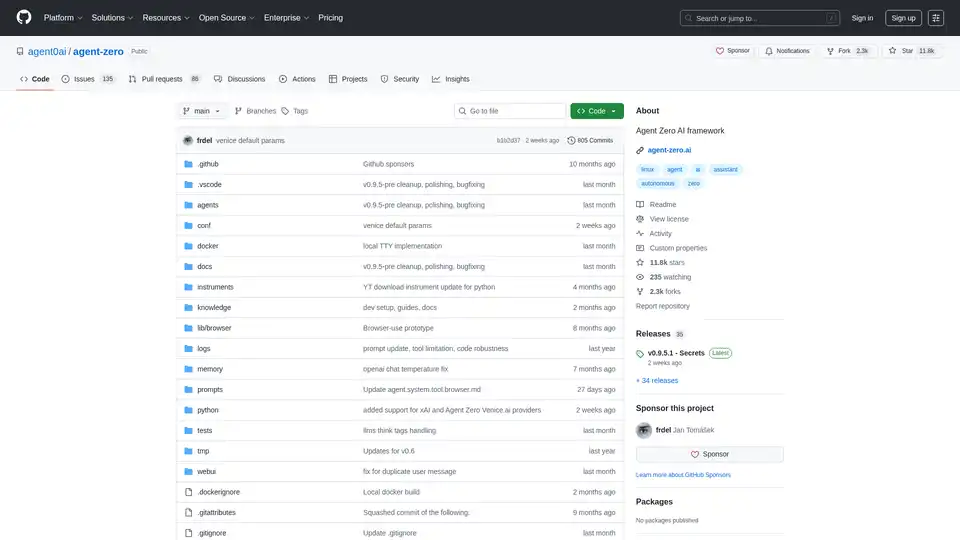
Agent Zero is an open-source AI framework for building autonomous agents that learn and grow organically. It features multi-agent cooperation, code execution, and customizable tools.
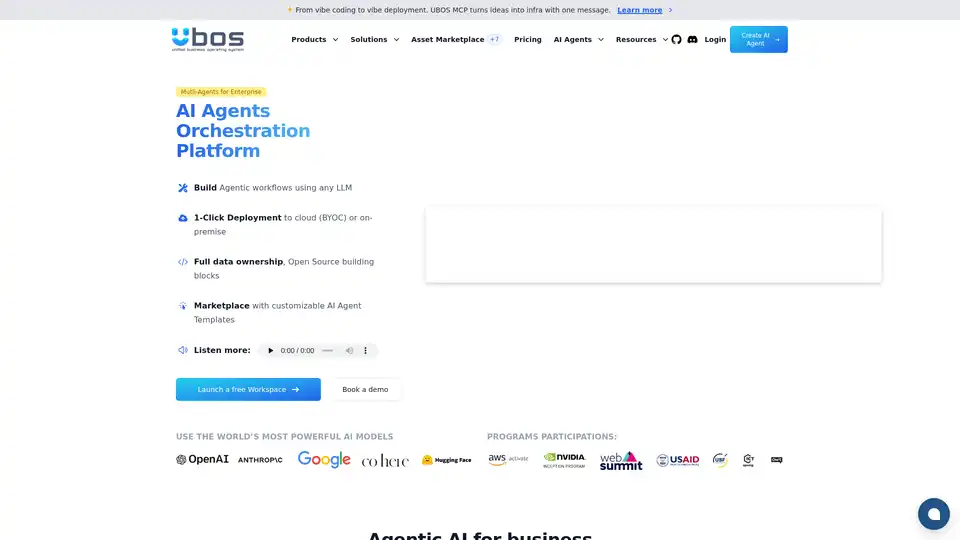
UBOS is a business operating system for AI agents, providing a low-code platform for building, deploying, and managing AI-driven applications with multi-agent orchestration and open-source tools.
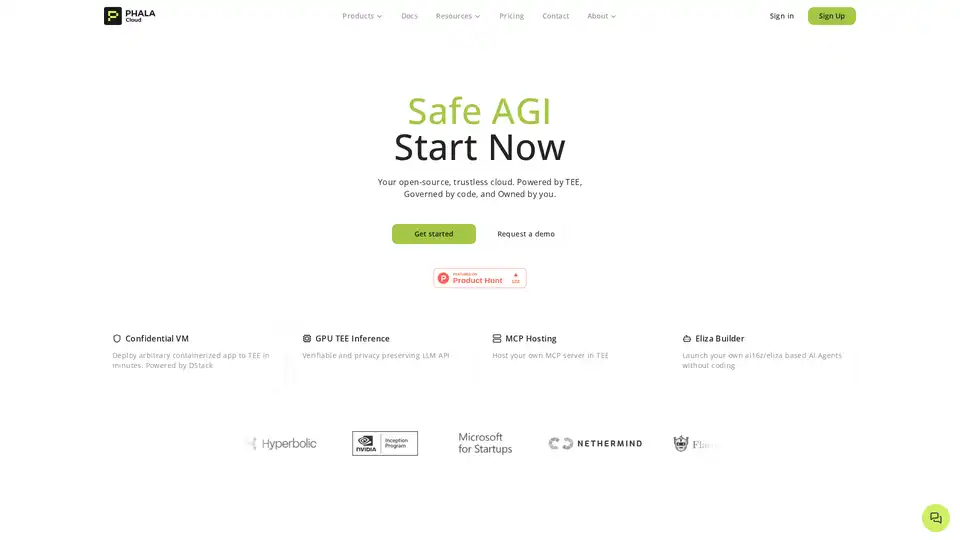
Phala Cloud offers a trustless, open-source cloud infrastructure for deploying AI agents and Web3 applications, powered by TEE. It ensures privacy, scalability, and is governed by code.
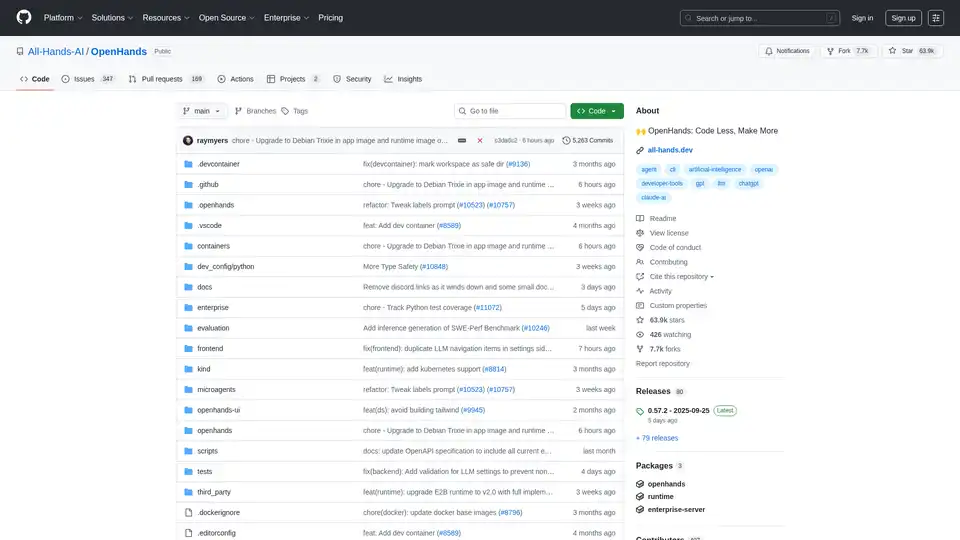
OpenHands is an AI-powered software development agent that can modify code, run commands, browse the web and call APIs. Sign up for OpenHands Cloud to get started.
